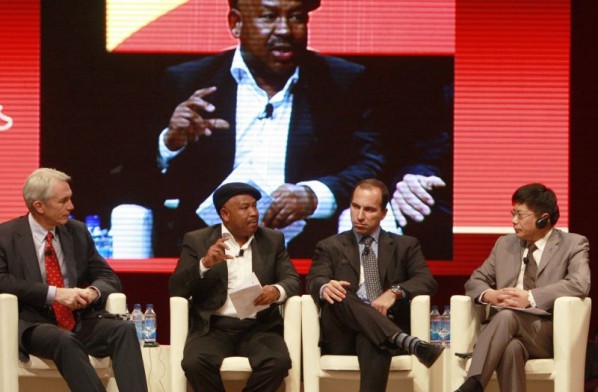IATA attacks British government
International Air Transport Association (IATA) chairman Antony Tyler has attacked the new British coalition government over its aviation policy.
As part of a wide ranging review of the industry at the annual Global Travel & Tourism Summit in Beijing, Mr Tyler branded the Conservative led coalition “unfriendly” to the airline industry.
High among his concerns was the scrapping of a proposed third runway at London Heathrow Airport, with the coalition ruling out the expansion of the location during the life of the next parliament.
Pictured: IATA chairman Antony Tyler
Proposed development at London Gatwick and London Stansted airports has also been put on hold, with the government proposing a high-speed rail network joining the north and south of England as a possible alternative.
Both the Liberal Democrat and Conservative parties had campaigned against the expansion proposals, with BAA effectively conceding defeat earlier this week with the withdrawal of a planning application for Heathrow.
Air Passenger Duty
However, Mr Tyler reserved his greatest ire for Air Passenger Duty (APD), which will also be reformed by the new coalition.
While the outgoing Labour administration had maintained APD was an environmental tax, the present incumbents openly admit revenue generated from the levy would be used to lower personal incomes tax thresholds, argued Mr Tyler.
“The government cannot treat the aviation industry as a cash cow,” he explained.
“I would like to add my voice to those at Virgin Atlantic and British Airways in opposing the new tax.
“The former configuration was bad enough, but these developments are simply unworkable.”

IATA chairman Antony Tyler, South Africa Tourist chairman Jabu Mabuza, Expedia chief executive Dara Khosrowshahi and China Tourism Academy vice president DAI Bin discuss aviation policy at WTTC 2010
Single European Sky
Also in the firing line was the European Union.
Mr Tyler – who is also chief executive officer of Australia’s Cathay Pacific – criticised the slow progress toward a Single European Sky, arguing the creation of such an entity could lower costs in the sector by as much as 12 per cent.
This could, in turn, lower costs for passengers, he argued.
The volcanic ash cloud - which closed European airspace in April - had highlighted the problem, argued Mr Tyler, but may have also hastened the creation of a single sky over Europe he conceded.
Security
Finally, on the last day of the World Travel & Tourism Council (WTTC) organised event, Mr Tyler called for a harmonisation of airport security measures around the world.
This would improve passenger experience as well as lowering costs for passengers, he argued.
“There are many things we can do to make travel easier; too often it infuriates rather than inspires,” he said.
“Inconsistencies in airport security need to be addressed, and aligned around the world.”
The airline industry spends $6 billion on security per annum.
However, responsibility of security is in hands of police outside airports, prompting Mr Tyler to question why the costs of protecting passengers in the sky were passed onto airlines – and therefore customers.
Harmonisation of security, and a greater government roll in meeting the costs, would substantially lower costs for passengers, Mr Tyler concluded.

